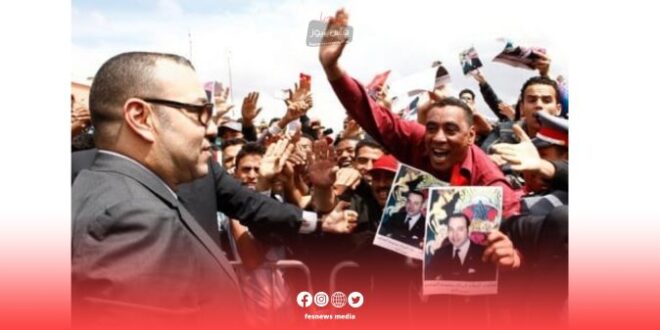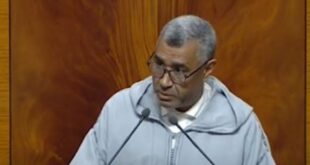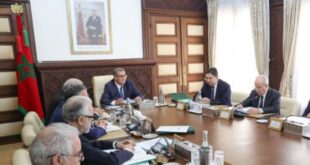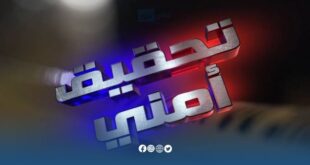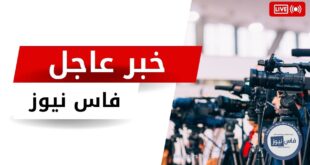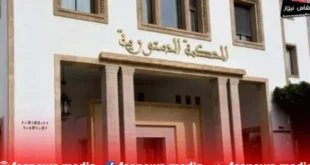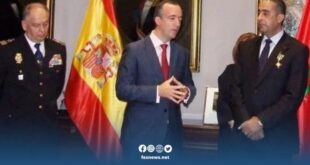The past quarter century of the reign of His Majesty King Mohammed VI, may God assist him, which began shortly after the installation of the alternation government that crowned a watershed in the political détente process arranged by His Majesty the late King Hassan II, represents a qualitative leap in the political history of our country in terms of the functioning of its institutions, the philosophy governing state affairs and governance, and the major reforms that accompanied it.
It is clear from the first signals and initiatives launched by the new era that there is a political thought based on modernization, social and territorial justice, democratic transition and human development, as well as the issue of our territorial integrity.
One of the first steps was the appointment of an official spokesperson for the royal palace, a welcome precedent for modernizing communication channels between the royal institution, political actors and national and international public opinion. This step was accompanied by the return of dissident Abraham Sarfati to Morocco and the lifting of the house arrest of Sheikh Abdessalam Yassine. The resounding event was the dismissal of the difficult figure in the equations of successive Moroccan governments since the 1970s, Minister of State and Minister of Interior Driss Basri, followed by the adoption of a new approach aimed at limiting authoritarianism by adopting the so-called new concept of power. This was followed by the choice of an advanced regionalization approach in order to create a degree of developmental and economic balance between the constituent regions of the state, stimulate local development and liberate it from the shackles of centralization.
The issue of human rights, torture and missing persons has been a major concern for the Moroccan state, in addition to what has been written and published about it in international forums and public opinion inside and outside of Morocco, presenting a negative image.
The initiative to address the issue of human rights violations came with the establishment of the Equity and Reconciliation Commission to investigate the facts of the gross violations and abuses that characterized the period known as the Lead Years.
The IER issued its famous report, the results of which were adopted by the Moroccan state with courage, integrity and the explicit support of His Majesty the King. We, as a Moroccan community living abroad, had a share of this report, as it was received with great satisfaction by most human rights activists and rights defenders, especially when the report dealt with the file of the infamous Wadadiyat, which wreaked great havoc and corruption in the diaspora.
The Ajdir speech and its decisions constitute a wise step and a visionary vision that laid the foundations for a Morocco of multidimensional identity, tributaries and components, and the crystallization of public policies to promote the Amazigh culture and language. The first of these achievements was the establishment of the Royal Institute of Amazigh Culture, which today accumulates a large number of conferences, research and academic studies.
Moroccan women and the family have also had a great deal of luck in these reforms, as the Family Code received great royal attention, which resulted in the revision of many clauses that human rights organizations and women’s associations have long considered unfair to women. Today, we are once again living in a promising phase of the process of revising the Family Code, under the generous initiative of His Majesty the King.
In the field of development, the National Initiative for Human Development is an expression of a political commitment by the highest authority in the country to fight rural poverty, urban exclusion and social and territorial marginalization.
By adopting a participatory and integrated approach and adopting the decentralization methodology, a networking and participatory dynamic was launched that led to the development of a social engineering at the regional level and the activation and involvement of various components of civil society in the development process.
As for the issue of our territorial integrity, the autonomy project proposed by Morocco was widely supported by the international community, which appreciated the seriousness and realism of the proposal that reflects the desire of the international community and its conformity with the legal and political standards in force. All the proposals contained in the autonomy initiative under Moroccan sovereignty were keen to enable all Sahrawis living in Morocco or abroad to democratically manage their local affairs through representative, legislative, executive and judicial bodies.
The 2011 Constitution is an exceptional milestone in Moroccan constitutional history, as the task of constitutional revision will be entrusted to a team of Moroccan experts and academics, unlike previous constitutions, which were not without the imprint and touches of foreign constitutional jurists. Experts consider the 2011 constitution to be the most advanced on the African continent, the Maghreb and the Arab world.
His Majesty the King expresses on many occasions his generous care for the Moroccans of the world and his keenness to serve their interests to their satisfaction and strengthen the bonds that bind them to their homeland. We recall here the historic speech of November 6, 2005 and its contents on the right of Moroccans to political participation and their right to full citizenship, and the speech of August 20, 2022 through the provisions of the 2011 Constitution and what it included regarding participation in elections and their representation in parliament.
While we are proud of the high care and patronage that His Majesty the King has always given to the Moroccans of the world, we regret what has become of the Diaspora Council in its process of decline and its accumulated failures and failures, as it has not risen even once since its establishment to the level of His Majesty’s care for the Moroccans of the Diaspora, but rather specialized in working day and night against their legitimate interests and constitutional rights and implementing a policy of exclusion, marginalization and blacklist logic against serious associative actors, emerging from the ranks of democratic civil society of the Moroccans of the world.
We also question the fate of the Ministry in charge of World Expatriates, which has disappeared from sight and has no trace of its existence. We do not hesitate to hold the current government, which has accumulated failures and failures, responsible for the political exclusion and troubles suffered by the Moroccan community abroad.
As a matter of fairness, moral and intellectual integrity, and in the interest of truth, we commend the Hassan II Foundation for Moroccans Abroad and what it has been doing since its establishment in serving the interests of the Moroccan community abroad, and we congratulate it for the trust and good reputation it has accumulated among Moroccans of all groups and ages, and its competent staff who practice the policy of proximity and listening with a noble humanitarian perspective rooted in Moroccan culture and its timeless moral values, this honorable institution deserves our deepest thanks and great gratitude.
In conclusion, we seek from the honorable thrones and from the nobility of His Majesty the King, may God protect him, a generous royal pardon that restores freedom to the detainees of the Rif Hirak activists, journalists, and political activists. No one will be disappointed who goes to God’s sovereignty.
As we share the joy of this happy anniversary with all segments of the noble Moroccan people, we renew our warm and sincere congratulations to His Majesty King Mohammed VI, may God help him, and we pray for good luck, success, health, well-being and happiness, as well as for His Highness Crown Prince Moulay El Hassan and the rest of the noble royal family.
Brussels, July 29, 2024
Abdelaziz Sart
Source : Fes News Media
 فاس نيوز ميديا جريدة الكترونية جهوية تعنى بشؤون و أخبار جهة فاس مكناس – متجددة على مدار الساعة
فاس نيوز ميديا جريدة الكترونية جهوية تعنى بشؤون و أخبار جهة فاس مكناس – متجددة على مدار الساعة

